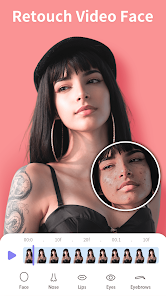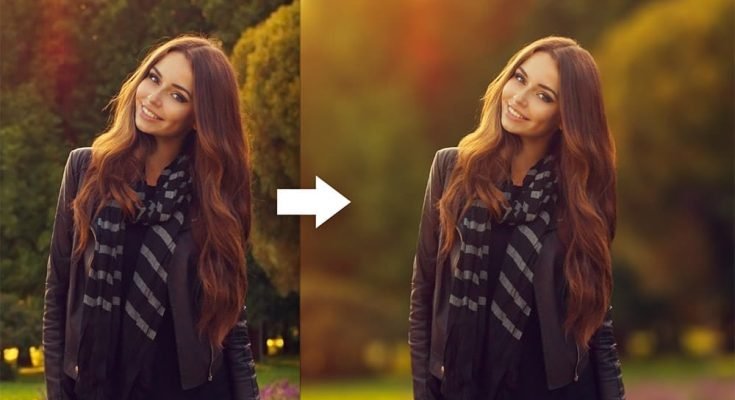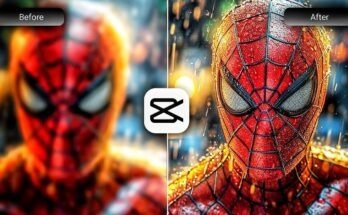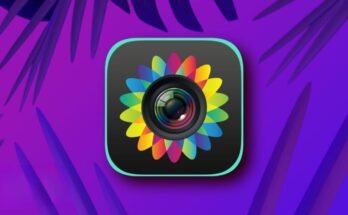In today’s fast-paced world of photography and mobile editing, one effect that continues to capture attention is the DSLR blur effect—a smooth, professional-looking background blur that makes the subject pop. Whether you’re using an entry-level smartphone or a professional camera, that creamy background blur gives your photos a high-end, cinematic touch. But what exactly is DSLR blur? And how can regular users get this look without expensive equipment? Let’s explore everything you need to know about DSLR Blur and how you can use it like a pro—even from your phone.
What is DSLR Blur?
DSLR Blur refers to the blurred background effect produced by DSLR (Digital Single-Lens Reflex) cameras. It creates a shallow depth of field, where the subject remains sharp while the background appears artistically out of focus. This technique is commonly used in portrait photography, product shots, and cinematic visuals.
The blur effect is typically achieved through the use of wide-aperture lenses, such as f/1.8 or f/2.8, which allow a lot of light into the sensor and create a narrow focus range. However, thanks to modern apps and AI-powered tools, achieving DSLR-style blur is now possible even without a DSLR camera.

DSLR Blur
Today, “DSLR Blur” isn’t just a camera effect—it’s a feature offered by many mobile apps and editing software. These tools use AI and computational photography to mimic the shallow depth of field that traditional DSLR cameras provide.
Apps like Snapseed, AfterFocus, CapCut, and FaceTune offer DSLR blur functionality, letting users apply blur after the photo is taken. Some apps even allow manual adjustments for better control over the blur intensity and radius.
This makes DSLR blur accessible to anyone with a smartphone and an eye for creative photography—no expensive gear needed.
Features of DSLR Blur [Completely Detailing]
Here’s a comprehensive look at the main features of DSLR Blur, whether it’s coming from a camera or a mobile app:
1. Depth Control
You can adjust the intensity of the blur effect to match your creative intent. Some apps also allow selective focus, meaning only a specific area stays sharp.
2. Bokeh Effect Simulation
Bokeh is the quality of the blur—often shown as round or oval highlights in the background. DSLR blur apps try to replicate this aesthetic by simulating lens bokeh.
3. Subject Detection with AI
Modern apps use AI to detect the subject in an image and automatically separate it from the background. This makes applying blur easier and more precise.
4. Real-Time Preview
In some advanced apps and DSLR cameras, you can preview the blur effect live before taking the photo.
5. Portrait Mode Integration
Many smartphones now have a built-in portrait mode, which adds a DSLR-like blur in real-time using depth sensors and AI.
6. Manual Blur Tools
For advanced users, manual tools let you paint the blur effect exactly where you want it, giving total control over the final output.
7. Video Blur (Cinematic Blur)
Some apps even offer DSLR-style blur in videos, which is perfect for vloggers, content creators, or short filmmakers.
Pros of DSLR Blur [Use Table]
| Pros | Description |
|---|---|
| Professional Look | Gives photos a clean, high-end, DSLR-like aesthetic |
| Focus on Subject | Helps draw attention to the main object/person in the frame |
| Easy to Achieve | Mobile apps now allow DSLR blur without needing expensive cameras |
| Great for Portraits | Ideal for selfies, close-up portraits, and fashion photography |
| Enhances Creativity | Allows users to experiment with depth, light, and focus |
| Available in Free Apps | Many apps like Snapseed, PicsArt, and CapCut offer DSLR blur for free |
Cons of DSLR Blur [Use Table]
| Cons | Description |
|---|---|
| Can Look Artificial | Poorly applied blur may look fake or over-processed |
| Edge Detection Errors | Some apps may blur part of the subject if AI detection fails |
| App Limitations | Free apps may offer limited blur control compared to premium or manual tools |
| Requires Learning | Beginners may struggle to apply blur naturally without practice |
| Not True Optical Blur | Most mobile blurs are digital, lacking the true depth of field from real lenses |
DSLR Blur Alternatives [Use Table]
If you’re looking for similar or better blur tools, here are some alternatives to DSLR Blur you can explore:
| Alternative App/Tool | Platform | Key Features |
|---|---|---|
| Snapseed | Android, iOS | Lens blur tool, selective editing, precise control |
| AfterFocus | Android, iOS | Dedicated for DSLR-like background blur, smart focus detection |
| CapCut | Android, iOS | Video blur effects, portrait blur, cinematic editing |
| FaceTune | Android, iOS | Smooth skin + background blur, auto-subject detection |
| PicsArt | Android, iOS | Variety of blur tools: motion blur, focal blur, zoom blur |
| Lightroom Mobile | Android, iOS | Premium blur effects, depth masking with pro camera profiles |
DSLR Blur
The beauty of DSLR Blur lies in its simplicity and artistic appeal. It’s not just about blurring the background—it’s about highlighting the subject, creating depth, and enhancing storytelling in your image or video.
Thanks to the evolution of smartphones and intelligent editing apps, you no longer need to invest in heavy DSLR gear to create this professional effect. From Instagram-worthy selfies to cinematic short videos, DSLR blur adds a polished finish to your visuals.
However, to get the best results, it’s essential to understand how and when to use the blur, avoid over-processing, and experiment with various apps to find what works best for your style.



